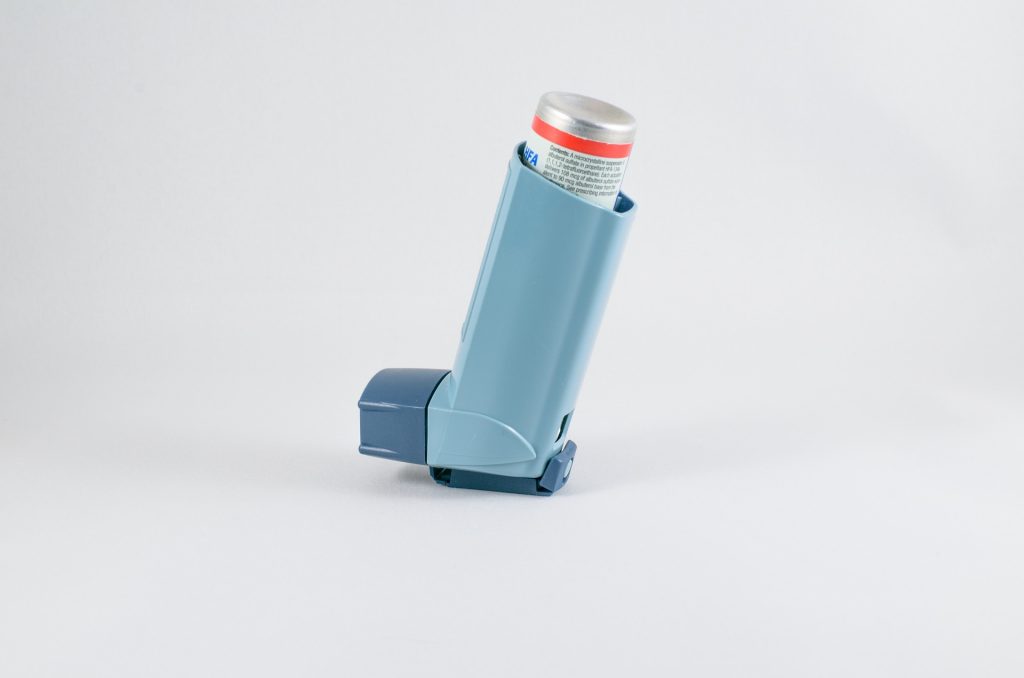First New Treatment for Asthma Attacks in 50 Years

An injection given during some asthma and COPD attacks was shown to be more effective than the current treatment of steroid tablets, reducing the need for further treatment by 30%. The findings, published in The Lancet Respiratory Medicine, could be “game-changing” for millions of people with asthma and COPD around the world, scientists say.
The type of symptom flare-up the injection treats are called ‘eosinophilic exacerbations’ and involve symptoms such as wheezing, coughing and chest tightness due to inflammation resulting from high amounts of eosinophils, a type of white blood cell. Eosinophilic exacerbations make up to 30% of COPD flare-ups and almost 50% of asthma attacks. They can become more frequent as the disease progresses, leading to irreversible lung damage in some cases.
Treatment at the point of an exacerbation for this type of asthma has barely changed for over fifty years, with steroid drugs being the mainstay of medication. Steroids such as prednisolone can reduce inflammation in the lungs but have severe side-effects such as diabetes and osteoporosis. Furthermore, many patients ‘fail’ treatment and need repeated courses of steroids, re-hospitalisation or die within 90 days.
Results from the phase two clinical trial ABRA study, led by scientists from King’s College London and sponsored by the University of Oxford, show a drug already available can be re-purposed in emergency settings to reduce the need for further treatment and hospitalisations. The multi-centre trial was conducted at Oxford University Hospitals NHS Foundation Trust and Guy’s and St Thomas’ NHS Foundation Trust.
Benralizamab is a monoclonal antibody which targets eosinophils to reduce lung inflammation. It is currently used for the treatment of severe asthma. The ABRA trial has found a single dose can be more effective when injected at the point of exacerbation compared to steroid tablets.
The study investigators randomised people at high risk of an asthma or COPD attack into three groups, one receiving benralizumab injection and dummy tablets, one receiving standard of care (prednisolone 30mg daily for five days) and dummy injection and the third group receiving both benralizumab injection and standard of care. As a double-blind, double-dummy, active-comparator placebo-controlled trial, neither the people in the study, or the study investigators knew which study arm or treatment they were given.
After 28 days, respiratory symptoms of cough, wheeze, breathlessness and sputum were found to be better with benralizumab. After 90 days, there were four times fewer people in the benralizumab group that failed treatment compared to standard of care with prednisolone.
Treatment with the benralizumab injection took longer to fail, meaning fewer episodes to see a doctor or go to hospital. Quality of life also improved for people with asthma and COPD.
This could be a game-changer for people with asthma and COPD. Treatment for asthma and COPD exacerbations have not changed in fifty years despite causing 3.8 million deaths worldwide a year combined.
– Lead investigator of the trial Professor Mona Bafadhel from King’s Centre for Lung Health
She added: “Benralizumab is a safe and effective drug already used to manage severe asthma. We’ve used the drug in a different way – at the point of an exacerbation – to show that it’s more effective than steroid tablets which is the only treatment currently available. The big advance in the ABRA study is the finding that targeted therapy works in asthma and COPD attacks. Instead of giving everyone the same treatment, we found targeting the highest risk patients with very targeted treatment, with the right level of inflammation was much better than guessing what treatment they needed.”
The benralizumab injection was administered by healthcare professionals in the study but can be potentially administered in the GP practice or in the Emergency Department. Benralizumab was safe in the study and similar in safety to many past studies.
Professor Mona Bafadhel said, “We hope these pivotal studies will change how asthma and COPD exacerbations are treated for the future, ultimately improving the health for over a billion people living with asthma and COPD across the world.”
Source: King’s College London


